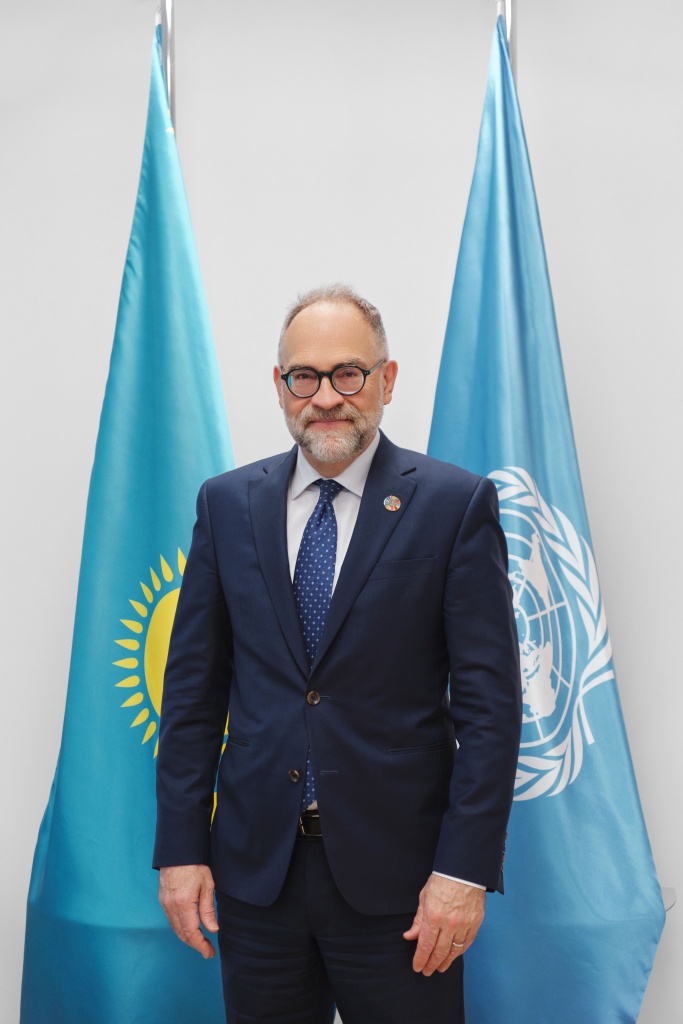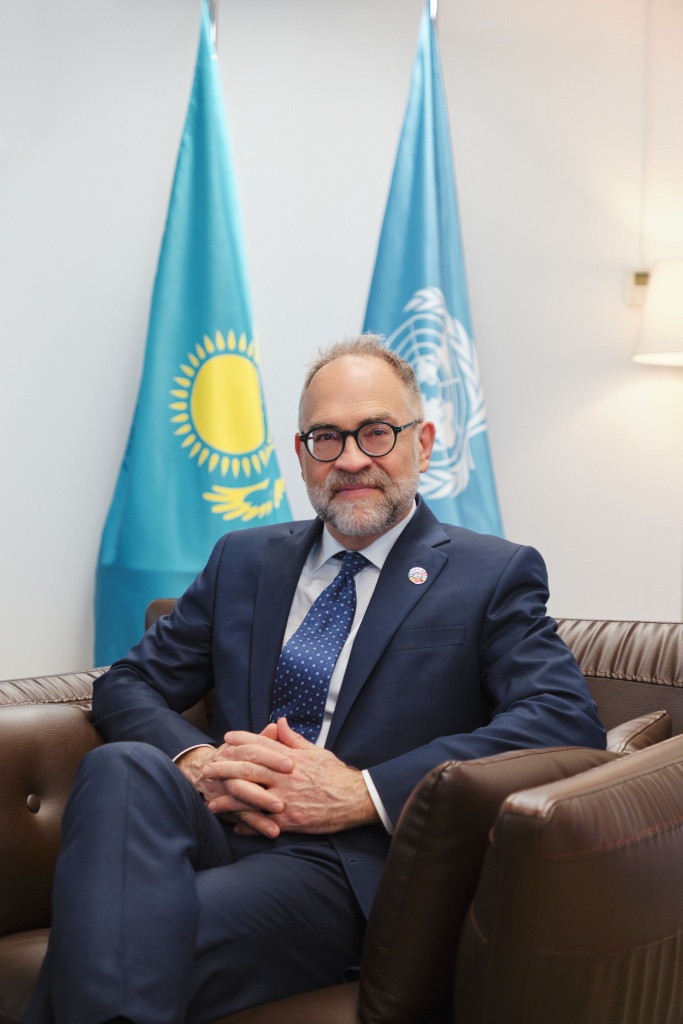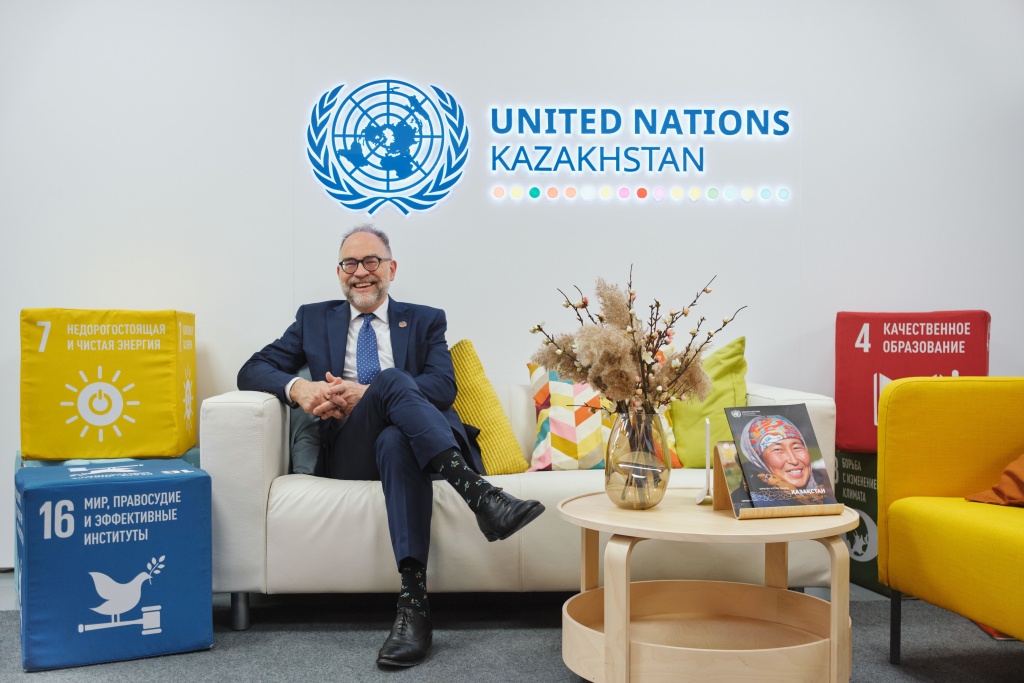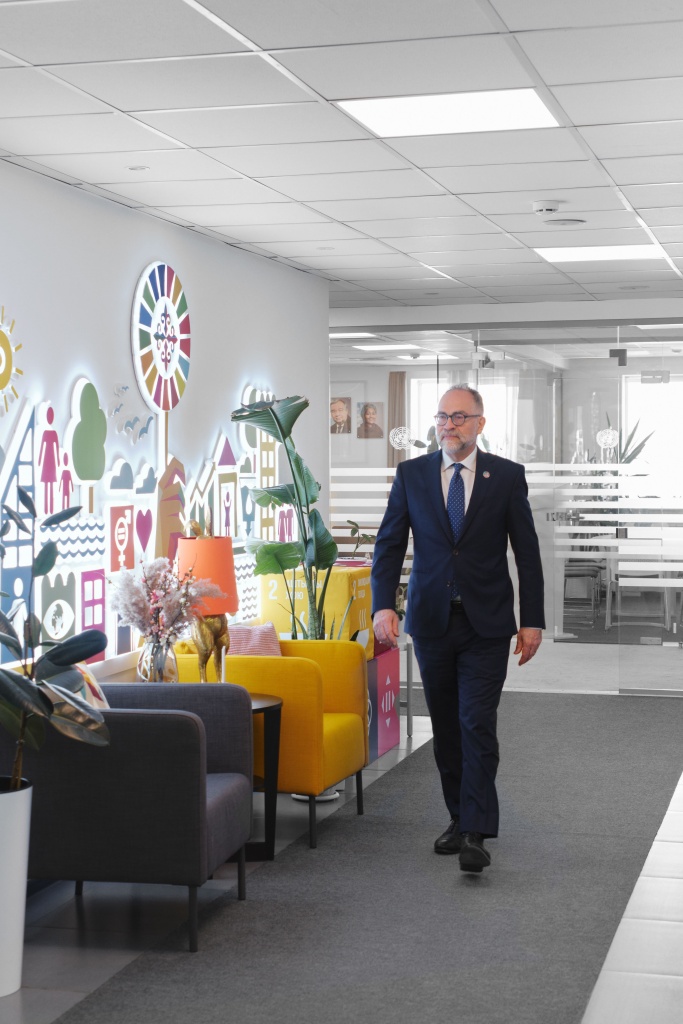The Acting UN Resident Coordinator in Kazakhstan on the main areas of work in Kazakhstan and life in the country.
Stephen O’Malley, city — Astana, Acting UN Resident Coordinator in the Republic of Kazakhstan, linkedin

About myself
After graduating from university in Canada, I started my career in the private sector, where I spent about four years. But I always dreamed of working at the international level and was interested in international development issues. I worked for about seven years in a non-governmental organization in different parts of the world. After that, I joined the UN and worked in various positions for about 10 years before becoming a Resident Coordinator.
When I started my career at the UN, I was mainly involved in the humanitarian field, especially in Africa. I worked for about seven years in 20 countries, then I was appointed as the head of the UN Central Emergency Response Fund, to which Kazakhstan also contributed. After that, I received my first appointment as a Resident Coordinator.
About my work
The UN has been present in Kazakhstan since the country gained independence. Since then, our cooperation has evolved along with Kazakhstan’s economic, political, and social development. The UN mainly helps Kazakhstan achieve international standards that the government has decided to implement. For example, in the area of new social programs, sharing experience with other countries, and environmental issues. Kazakhstan plays an important role in climate change negotiations and water resource issues, and the UN provides technical expertise.

We accompany Kazakhstan on its development path. Over time, our programs have also changed: whereas earlier we implemented projects ourselves, we are now focused on advising and supporting the government in policy development.
There are about 468 people working at the UN in Kazakhstan, and almost 400 of them are Kazakh citizens. When necessary, we bring in consultants from abroad, but we try to use local resources.
About Central Asia
This is my first visit to Kazakhstan and Central Asia.
I arrived here in November last year and have been living here for about six months now. I went through the whole winter, but I am Canadian, so this kind of weather is familiar to me.

When I first arrived in Astana, I was not surprised, but I was impressed by how developed the city is, how new the infrastructure is — roads, buildings. When you drive from the airport, you see new constructions, an ice hockey arena, and much more. That was the most striking thing. And when I started settling in and interacting more with people, I felt at home. The people here are friendly and always ready to help.
I like walking along the embankment in the mornings. The atmosphere there is peaceful, it’s nice to see families with children, people exercising, and enjoying coffee.
I have not yet been anywhere other than Astana and Almaty, but I want to see other regions. I have been told about Kazakhstan’s beauty and about life in rural areas. I also visited the mountains of Almaty — it was unforgettable.
About working in Central Asia
We are working together with the government on a new Cooperation Framework Agreement, which will define our joint work from 2026 to 2030. It will cover economic development, environmental issues, the rule of law, and human capital development. We strive to help Kazakhstan achieve national development goals and fulfill international commitments, such as the Paris Climate Agreement. We are also developing some projects related to the protection of the Caspian Sea.
We supported the initiative to create a Digital Family Map, as well as contributed to the development of legislation to combat domestic violence. In addition, we actively work with the Ministry of Health to improve the healthcare system, safe motherhood programs, and school nutrition programs.

I liked the 16 Days of Activism Against Gender-Based Violence initiative, which is coordinated by UN Women. Various events were held as part of the campaign, including student competitions, concerts, and discussions.
I am sometimes invited to give lectures at local universities. In April, we are preparing an event at one of the universities in Almaty. We try to hold public events not only in Astana and Almaty but also in other regions of Kazakhstan.
We want to give young professionals the opportunity to gain experience working at the UN, so internships are possible, but the application process takes time, as we have strict formal procedures.
One of the major projects we are working on is the 80th anniversary of the UN this year. We have quite an ambitious event plan. The 80th anniversary of the Organization will be on October 24, and we will definitely hold a big event in a concert format.
Together with Kazpost, we plan to issue a stamp, and a series of commemorative coins is also planned. The Akimat of Astana has allocated a site in the park, where the UN Square will be opened.
At the end of May, we will take part as strategic partners at the Astana International Forum, where many high-ranking UN officials will attend. This will be an important year for the UN in Kazakhstan, and it will truly showcase our partnership.